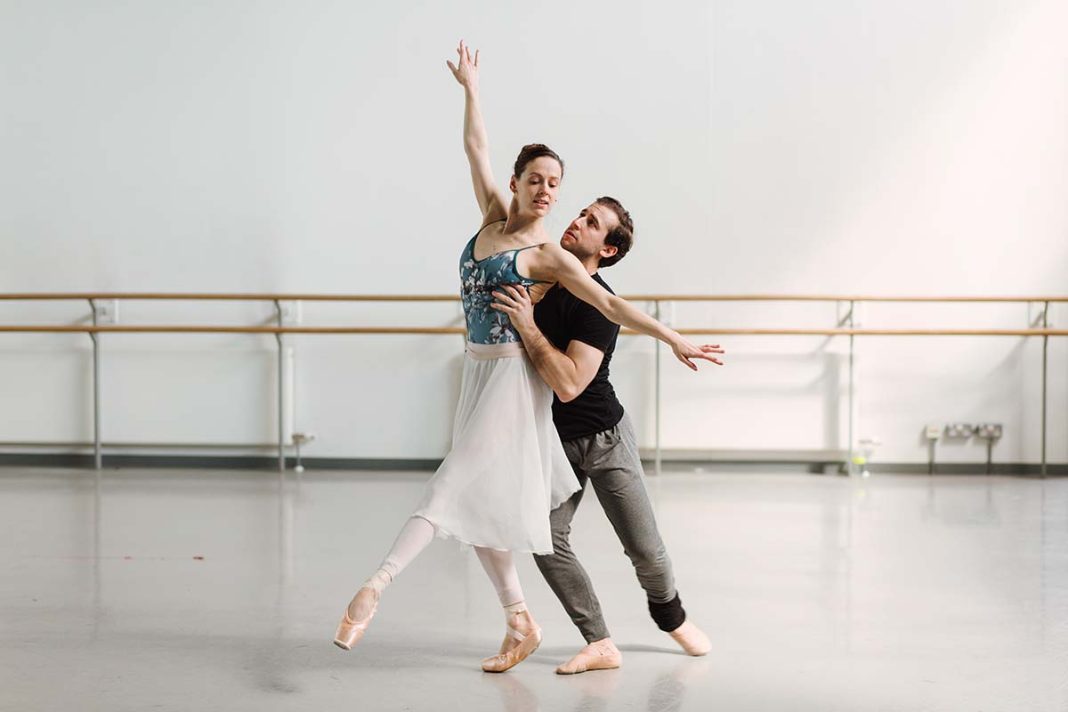Two of Scottish Ballet’s principal dancers take us behind the curtain to chat about life, love and rising through the ranks
words Natasha Radmehr | photography Laura Tiliman
In a sun-dappled studio in Glasgow, two of Scottish Ballet’s principal dancers move with liquid momentum.
Outside of this rehearsal room they are Roseanna Leney and Bruno Micchiardi, but right now they are A Streetcar Named Desire’s Blanche and Alan, a married couple whose relationship will soon unravel.
They are mesmerising to watch: graceful and strong, bending and swooping in easy harmony.
The pair have flexed their acting chops to bring this narrative ballet to life. The intimacy between them, though? That’s real.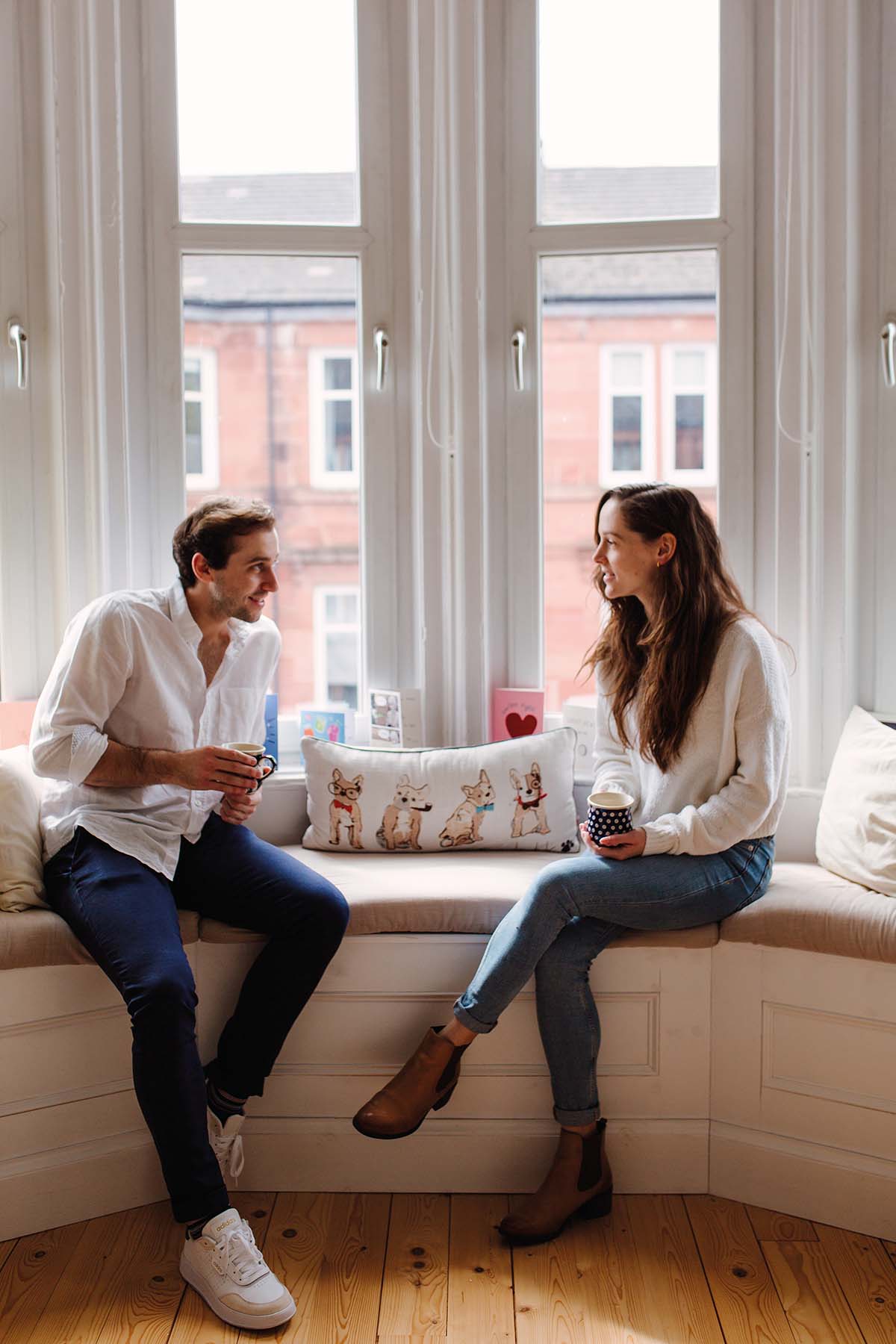
A REAL LIFE LOVE STORY
Roseanna and Bruno, both 30, have known each other for more than half their lives. They met at the Royal Ballet School’s White Lodge, a boarding school for young dancers, aged just 14.
“I was a goody-two-shoes – the kind of person who would have loved to be head girl,” says Roseanna, who was raised in Surrey and started attending ballet classes when she was only three years old. (She had alopecia and was “super-shy and nervous” – ballet allowed her to mix with others without having to speak.)
“And I was always being a bit naughty,” adds Bruno, who grew up in Spain and began dancing when he was six. “I came to White Lodge a bit later than everyone else. I had lived a very Mediterranean lifestyle and I was a bit loud, a bit obnoxious… I was drawn to Rosi because she was the opposite of me.”
It was a Sandy-and-Danny moment, then, when the two got together, aged 15. “Yeah, I don’t think the teachers liked it,” laughs Roseanna. “They’d ask, ‘Why are you with the class clown?’ But he was charming. Annoyingly so.”
Their teenage romance drew to a close after they graduated, their blossoming careers taking them to different countries. For the most part, they lost touch. Roseanna went to Poland and Bruno to Estonia, each dancing for their respective national ballet companies.
Five years in, Roseanna moved back to the UK and auditioned successfully for Scottish Ballet. It was the making of her. “Polish National Ballet had about 80 dancers, so it was quite a shock to come here to a smaller group of 38,” she says.
“I couldn’t retreat into my usual comfort zone of hiding in a group. Scottish Ballet forced me out of that – I just had to go for it. It gave me a level of confidence I didn’t think I could ever have.”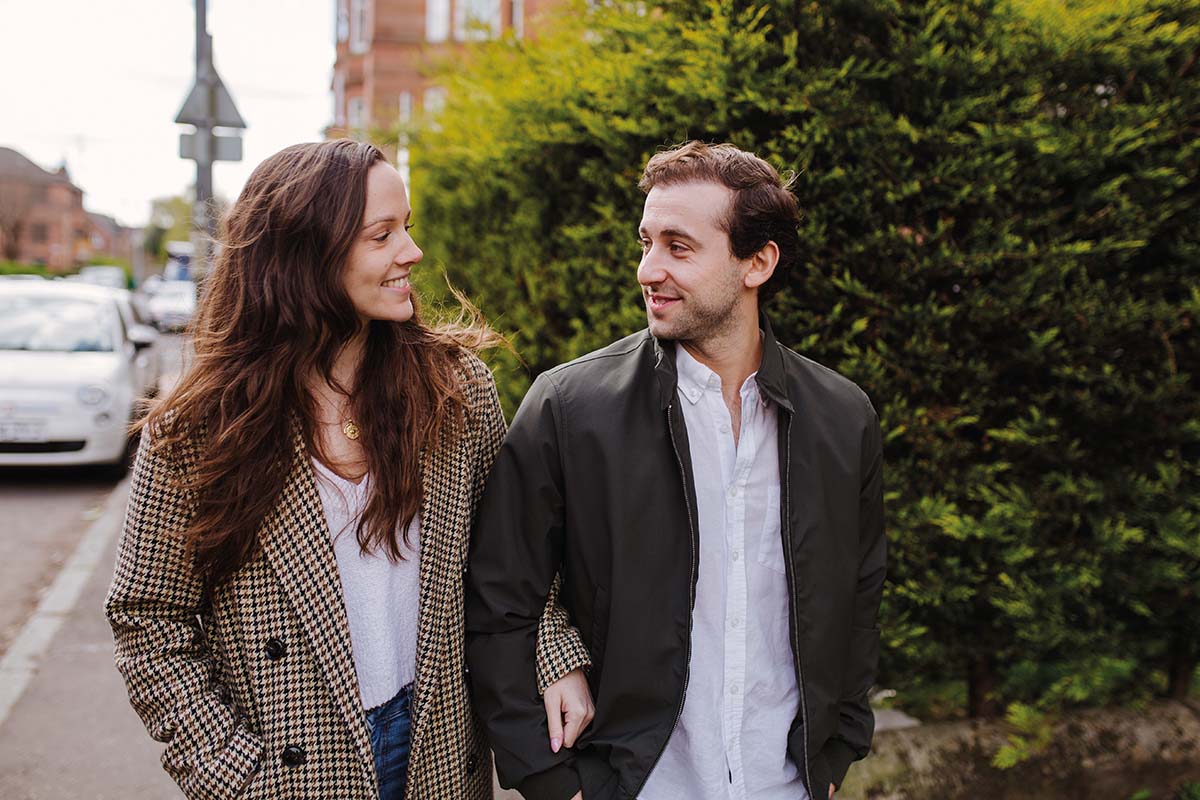
In Estonia, meanwhile, Bruno’s confidence had been bruised. He suffered an injury that resulted in ankle surgery and couldn’t dance for a while.
“After it, I danced differently. I moved differently. I couldn’t jump in the same way,” he recalls. “I started to get sad and emotionally drained. I felt like they wanted the old me back. So I decided to audition in the UK and told myself that if I didn’t get a job there, I’d quit ballet.”
He was all set to do it when Roseanna messaged him out of the blue to say a dancer of a similar build was leaving Scottish Ballet, and that he should audition. So he did. “Chris [Hampson, CEO/artistic director of Scottish Ballet] offered me a job there and then,” he smiles. “So, yeah, if Rosi hadn’t reached out…”
That was six years ago. Since then, they have soared; both were promoted to principal, the highest rank, last year (Bruno following his role as Dr Coppelius in Coppélia, Roseanna after her debut as the Snow Queen).
They also, during lockdown, rekindled their romance – which they both say has had a positive impact on their careers. “For me, it just helped to have someone in my corner saying, ‘You can do this’, encouraging me to believe in myself,” explains Roseanna.
Bruno says Roseanna calms his boisterous tendencies, nudging him towards professional maturity.
THE LIFE OF A PROFESSIONAL DANCER
Mostly, though, it’s a blend of talent and relentless graft. Every day in the lead-up to a show the dancers have a class from 10 until 11.15am, followed by a morning block of two-hour rehearsals.
After lunch: another four hours of rehearsals with the odd break. They work a half-day every Saturday. Free hours are often spent at the gym.
Female dancers need to sew their pointe shoes at night (“I’ll do it while watching something that lets me switch my brain off, like Made in Chelsea,” says Roseanna).
Then there are the actual performances: as many as nine a week during the festive season, which runs from November until February.
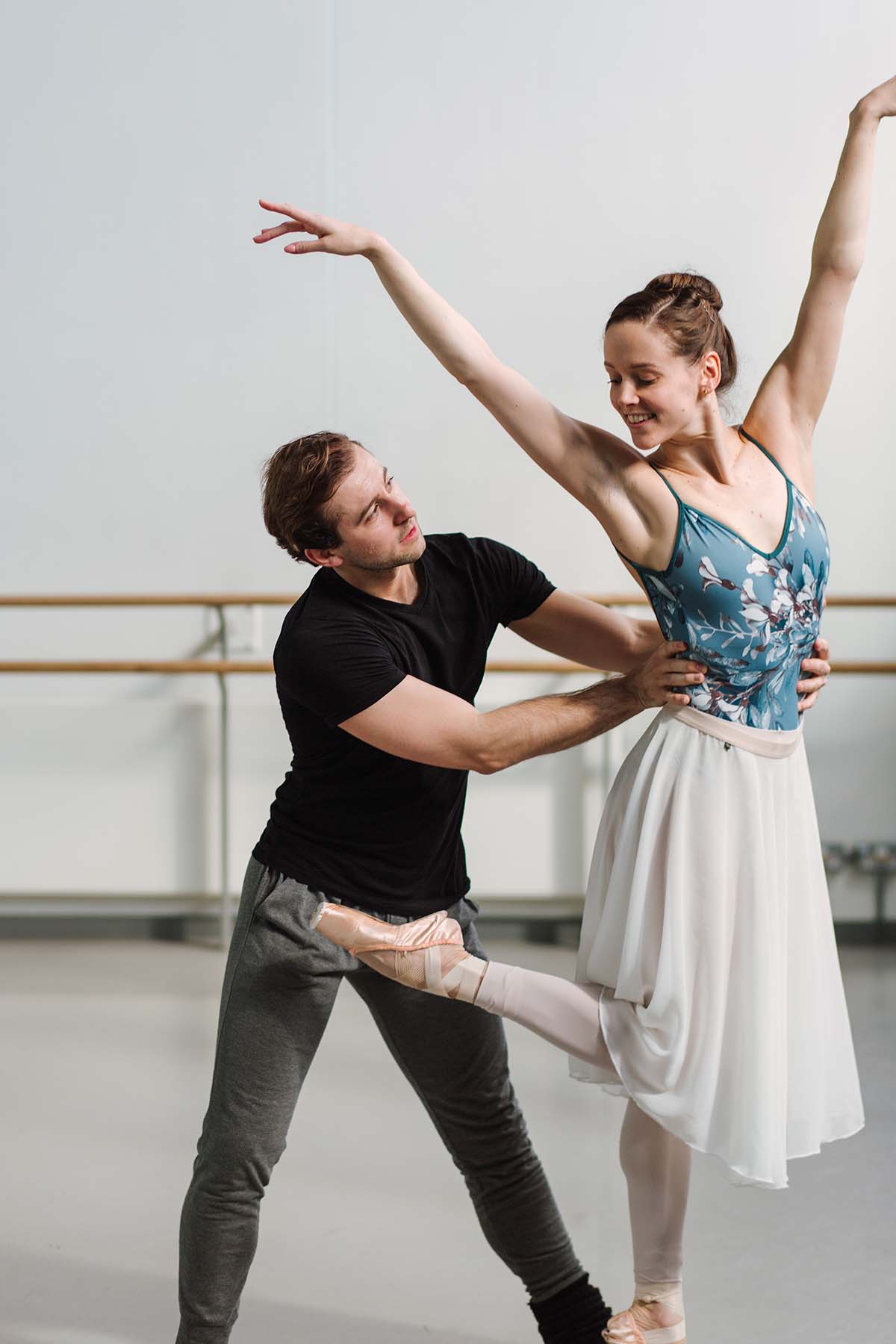
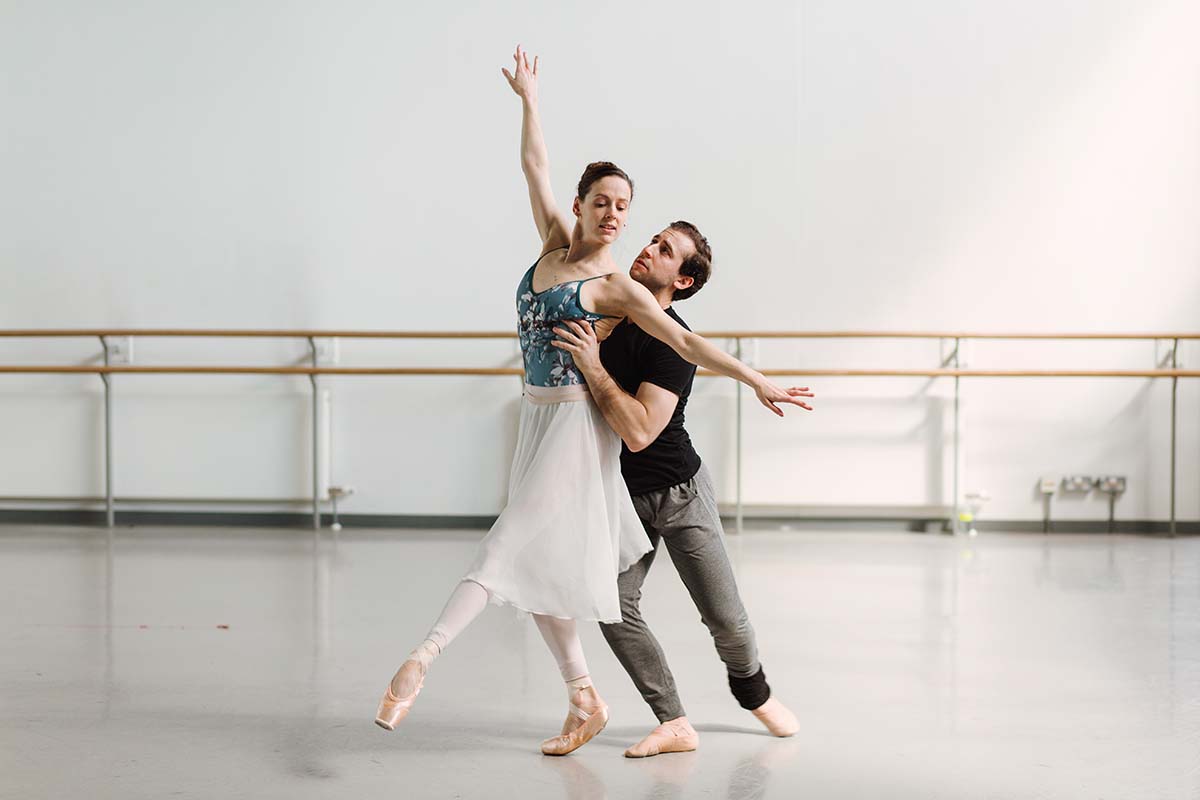 The company takes a four-week break in summer, so most dancers will holiday for a week or two (the couple recently went to Santorini) before spending the rest of their time off ‘pre-habbing’, or getting in shape for the next season.
The company takes a four-week break in summer, so most dancers will holiday for a week or two (the couple recently went to Santorini) before spending the rest of their time off ‘pre-habbing’, or getting in shape for the next season.
Being a ballet dancer is not a job. It’s a way of life.
It’s one that plenty of people hold unkind misconceptions about, too, perpetuated by films such as Black Swan.
“I was once asked by a taxi driver if I eat tissues,” says Roseanna. “I’m not saying that eating disorders don’t exist in the ballet world, because they do. But most of us eat more than the average person because our bodies need more fuel.”
Bruno recalls being punched at school for dancing, his peers chiding him for doing something that’s ‘for girls’. Ballet was not seen as a masculine pursuit despite the raw athleticism it demands.
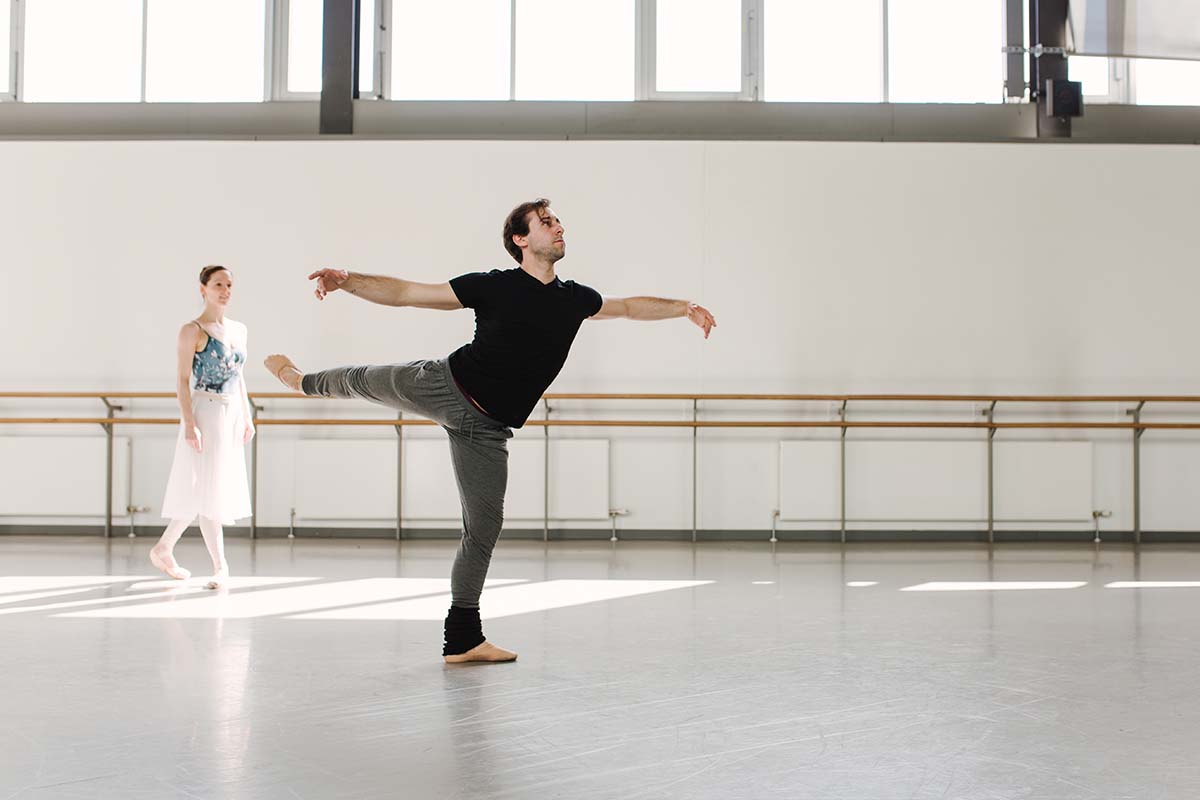 “I do think the world has changed a lot since then, though,” he concedes. “I don’t think it carries the same stigma now, which is great.”
“I do think the world has changed a lot since then, though,” he concedes. “I don’t think it carries the same stigma now, which is great.”
Still, nobody understands what it means to be enveloped in the world of ballet quite like other dancers.
As a result, many dancers socialise and holiday together, which makes sense considering their lives follow the same rhythm.
“That’s something we’re trying to break out of, actually,” says Bruno. “We keep saying we need to make some ‘normal’ friends too, because we see the same people all day every day,” continues Roseanna.
“And don’t get me wrong: they’re an amazing bunch. But sometimes you want to have different conversations.”
A GLASGOW LIFE
The couple live a street away from one another in Glasgow’s Southside. Sundays are spent grabbing almond croissants at Big Bear Bakery and seeking out new places for brunch and coffee.
To unwind, Bruno likes gaming, doing crosswords and baking, but Roseanna struggles to rest.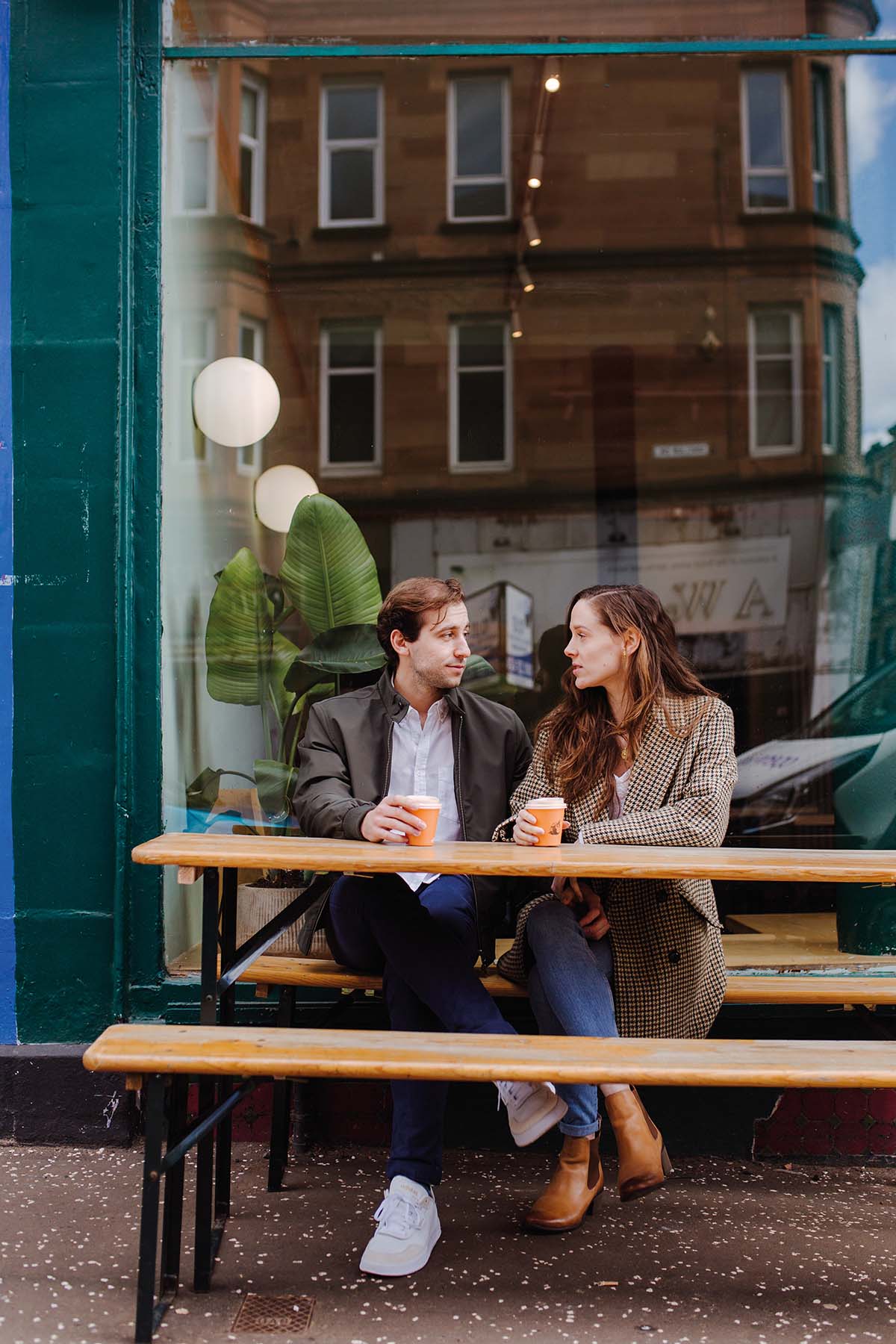
“I think being physically active is my way of relaxing,” she says. “In lockdown I did a personal training diploma so I teach fitness classes, which is fun. I also love doing yoga and I’m going to Bali this summer to train as a yoga teacher.”
This is as much for pleasure as it is practicality. The majority of ballet dancers retire in their mid- to late-30s, so Roseanna and Bruno are already thinking ahead to what might come next.
They’re currently mulling over opening what they call a rebalance centre; somewhere people could stay over, do a bit of yoga and fitness, eat good food, drink artisan coffee.
A place they could dial things down a notch without losing sight of the wellness practices that have become so ingrained in their lives.
But for now, there’s still more they’d like to achieve as dancers.
They love the variety of work they do at Scottish Ballet, from outreach programmes to performing on screen and, of course, stage.
“I’d love more roles like Blanche, where the primary focus isn’t on whether, say, a double pirouette works, but instead is more about holding the ballet, holding the storyline,” adds Roseanna.
“I was able to completely lose myself in it.”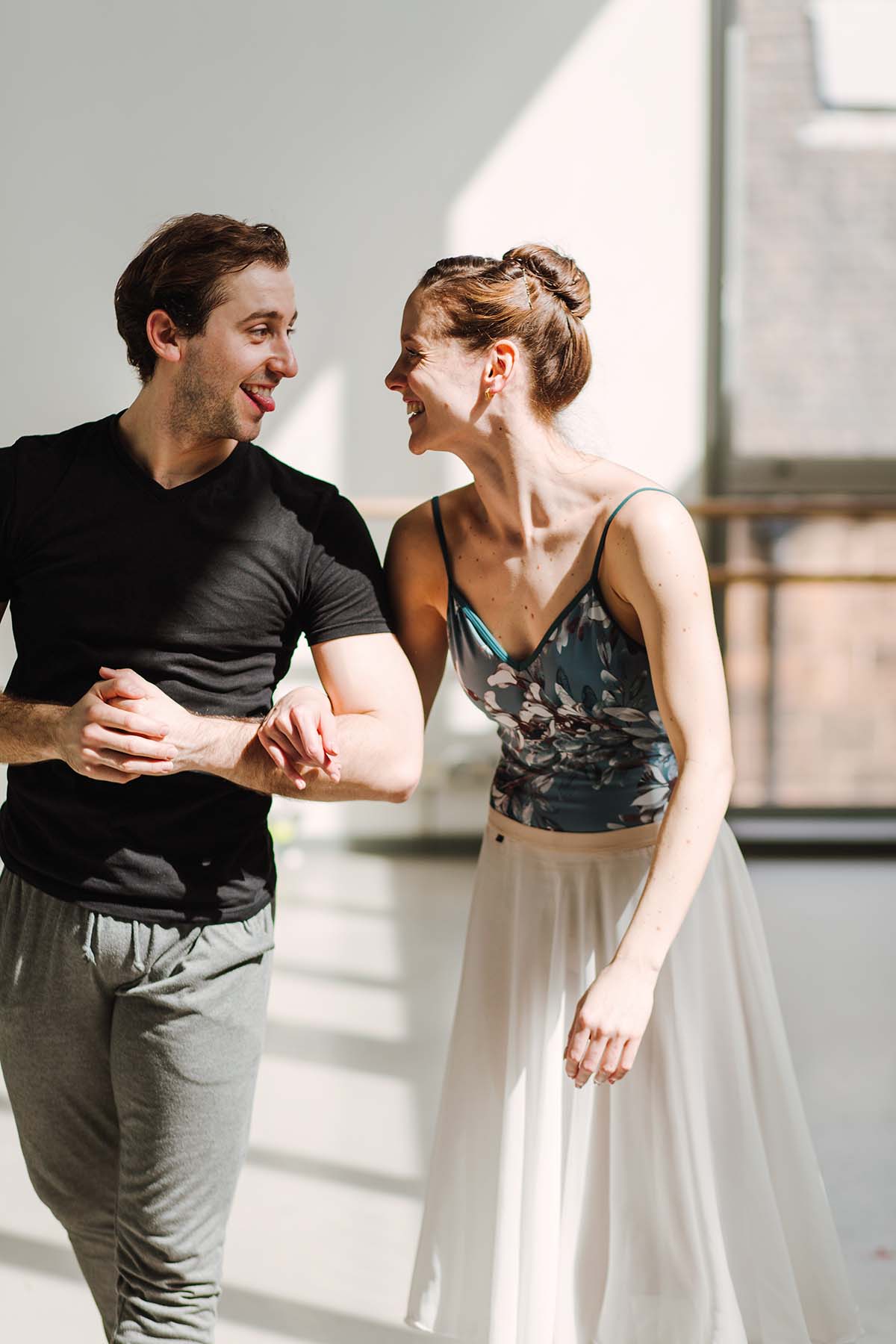
They also want to actively appreciate where they are right now, and rightly so.
“We have some years left doing this, but not necessarily a long time,” says Bruno.
“We’ve put in all of this work and now is the time to enjoy it. We’ve got here, and we’re so lucky.”


